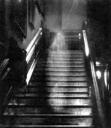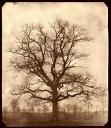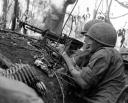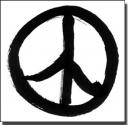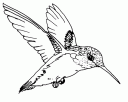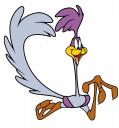It is 12:20 in New York a Friday
three days after Bastille day, yes
it is 1959 and I go get a shoeshine
because I will get off the 4:19 in Easthampton
at 7:15 and then go straight to dinner
and I don’t know the people who will feed me
I walk up the muggy street beginning to sun
and have a hamburger and a malted and buy
an ugly NEW WORLD WRITING to see what the poets
in Ghana are doing these days
I go on to the bank
and Miss Stillwagon (first name Linda I once heard)
doesn’t even look up my balance for once in her life
and in the GOLDEN GRIFFIN I get a little Verlaine
for Patsy with drawings by Bonnard although I do
think of Hesiod, trans. Richmond Lattimore or
Brendan Behan’s new play or Le Balcon or Les Nègres
of Genet, but I don’t, I stick with Verlaine
after practically going to sleep with quandariness
and for Mike I just stroll into the PARK LANE
Liquor Store and ask for a bottle of Strega and
then I go back where I came from to 6th Avenue
and the tobacconist in the Ziegfeld Theatre and
casually ask for a carton of Gauloises and a carton
of Picayunes, and a NEW YORK POST with her face on it
and I am sweating a lot by now and thinking of
leaning on the john door in the 5 SPOT
while she whispered a song along the keyboard
to Mal Waldron and everyone and I stopped breathing
The first thing that struck me about the poem is the lack of punctuation. The poem is one long, run on sentence with one comma in the first stanza. It’s interesting that the poem itself never ends but is written about/on the day when Lady died.
Literally it’s a recollection of the events he went through on the day that Lady died. But who is Lady? A woman? Perhaps that’s her nickname. I’m assuming he’s not talking about Lady from Lady in the Tramp. His poetry is unconventional… perhaps I shouldn’t rule that out quite yet.
An oddity I found in the poem, first of all, was the lack of punctuation. I also didn’t see a reference to this Lady once in the poem. It looms over the poem but never appears in it, perhaps like a ghost? She follows him through the day, always there but never actually present. Interesting.
The lack of punctuation really strikes me. Forgive me for harping on it. But I think I understand why he did it. Well, some of it. Not quite all. The fact that there’s never a period makes the sentences and the poem never ending. A period marks the end but there isn’t one. The poem never dies. It juxtaposes the title, The Day Lady Died, but it goes along with a theme of the poem. Lady died, but follows him through the day. She’s always looming over him and following him like a ghosts.
Ghosts are eternal, this poem is eternal. Not even using words, O’Hara conveys a powerful message about death. A person may die, but their spirit can live on. Perhaps not a literal spirit, but their memory remains and the fact that they were once alive will not change. Author Kurt Vonnegut Jr. said in one of his novels:
“When a person dies, he only appears to die. He is still very much alive in the past… All moments, past present, and future, always have existed, always will exist.”
Basically, O’Hara is helping people cope with the loss of a loved one. His day still goes on though Lady is gone. She may have died, but she is always with him. She’s always a presence in his life. And that’s something very comforting to think about after the passing of a loved one.


